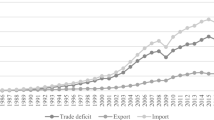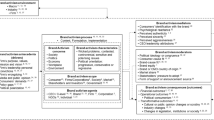Abstract
Marketplaces in Anglophone West Africa have a long history. However, previous studies have failed to conceptualise the characteristics of these marketplaces in an organised manner. This article demonstrates that the Anglophone West African marketplace is a multidimensional concept characterised by six interrelated features, namely physical, social, economic, cultural, governance, and contestation attributes. With increasing globalisation and penetration of global and regional supermarket chains in Africa, the multifunctional space of the Anglophone West African marketplace, as experienced in Euro-American contexts, risks extinction. More broadly, the article shows that the attributes identified in this framework have relevance beyond Anglophone West Africa, suggesting that the marketplace in other parts of Africa and the Global South face similar threats. The framework lends itself to further research in several disciplines and has applied relevance for Anglophone West African policymakers and municipal authorities as well as the international community.
Similar content being viewed by others
References
Adom, K. Y.-K. (2010). Evaluating the relationship between the formal and informal economy in Ghana: A case study of Koforidua in the Eastern Region. Ph.D. Thesis. Sheffield: University of Sheffield.
African Centre for Cities. (2015). Urban infrastructure in Sub-Saharan Africa: Harnessing land values, housing and transport. Cape Town. Retrieved from https://assets.publishing.service.gov.uk/media/57a08a0f40f0b652dd000542/61319-DfID_Inception_report_Conceptual_Framework_Extract.pdf. Accessed 18 Jan 2018.
Amiteye, J. (2015). The proposed redevelopment of the Takoradi market circle and its likely implications for market traders’ access to trading space. MSc Thesis. Bergen: University of Bergen.
Anyidoho, N. A., & Steel, W. F. (2016a). Informal-formal linkages in market and street trading in Accra. African Review of Economics & Finance,8(2), 171–200.
Anyidoho, N. A., & Steel, W. F. (2016b). Perceptions of Costs and Benefts of Informal-Formal Linkages: Market and Street Vendors in Accra, Ghana. Working Paper No. 35. Women in Informal Employment Globalizing and Organizing (WIEGO), Cambridge.
Arhin, K. (1971). Atebubu markets: ca. 1884–1930. In International African (Ed.), The development of indigenous trade and markets in West Africa. London: Oxford University Press.
Asante, L. A., & Helbrecht, I. (2018). Seeing through African protest logics: A longitudinal review of continuity and change in protests in Ghana. Canadian Journal of African Studies/Revue Canadienne Des Études Africaines,52(2), 1–23.
Awomolo, A. A. (1998). The political economy of market women in Western Nigeria. Ph.D. Thesis. Atlanta: Clark Atlanta University.
Awuah, E. (1997). Mobilizing for change: A case study of market trader activism in Ghana. Canadian Journal of African Studies/Revue Canadienne Des Études Africaines,31(3), 401–423.
Ayittey, G. B. N. (2006). Indigenous African Institutions. Ardsley: Transnational Publishers Inc.
Baah-Ennumh, T. Y., & Adom-Asamoah, G. (2012). The role of market women in the informal urban economy in Kumasi. Journal of Science and Technology,32(2), 56–67.
Beek, J., & Thiel, A. (2017). Orders of trade: Regulating Accra’s Makola market. The Journal of Legal Pluralism and Unofficial Law,49(1), 34–53.
Boapeah, S. N. (2001). The informal economy in Kumasi. In K. K. Adarkwa & J. Post (Eds.), The Fate of the Tree: Planning and Managing the Development of Kumasi, Ghana. Amsterdam: Thela Thesis.
Bohannan, P., & Dalton, G. (Eds.). (1962). Markets in Africa. Amsterdam: Northwestern University Press.
Braudel, F. (1983). Civilisation and capitalism, 15th–18th Century: The wheels of commerce. London: William Collins Sons & Co Ltd.
Bromley, R. D. F., & Mackie, P. K. (2009). Displacement and the new spaces for informal trade in the Latin American City Centre. Urban Studies,46(7), 1485–1506.
Buechler, J.-M. (1978). The dynamics of the market in La Paz, Bolivia. Urban Anthropology,7(4), 343–359.
Campell, J. (1985). Ideology and politics in the markets of Ghana. Canadian Journal of African Studies/Revue Canadienne Des Études Africaines,19(2), 423–430.
Chamlee-Wright, E. (1997). The cultural foundations of economic development: Urban female entrepreurship in Ghana. London: Routledge.
Chuku, G. (2005). Igbo women and economic transformation in southeastern Nigeria, 1900–1960. London: Routledge.
Clark, G. (1990). Class alliance and class fractions in Ghanaian trading and state formation. Review of African Political Economy,17(49), 73–82.
Clark, G. (1994). Onions are my husband: Survival and accumulation by West African market women. Chicago: The University of Chicago Press.
Clark, G. (1997). Market queens: Innovation within Akan tradition. Annals of the New York Academy of Sciences,810(1), 173–201.
Clark, G. (2008). Working the field: Kumasi central market as community, employer, and home. Anthropology of Work Review,29(3), 69–75.
Clark, G. (2010). African market women: Seven life stories from Ghana. Bloomington: Indiana University Press.
Dirksmeier, P., & Helbrecht, I. (2010). Intercultural interaction and “situational places”: A perspective for urban cultural geography within and beyond the performative turn. Social Geography,5(1), 39–48.
Don-Arthur, E. (2015). The People and Places of the Kumasi Central Market & Kejetia Lorry Park: Yesterday, Today, Tomorrow. Film. Kumasi. Ghana.
Dunne, M., & King, R. (2003). Outside Theory: An exploration of the links between education and work for Ghanaian market traders. Journal of Education & Work,16(1), 27.
Elwert, G., Evers, H. D., & Wilkens, W. (1983). In search of security-combined forms of production in the so-called informal sector. Zeitschrift fur Soziologie, 12(4), 281–296.
Eades, J. S. (1993). Strangers and traders: Yoruba Migrants, markets and the State in Northern Ghana. Edinburgh: Edinburgh University Press Ltd.
Fafchamps, M. (2004). Market Institutions in Africa: Theory and evidence. Cambridge: The MIT Press.
Fuseini, I., Yaro, J. A., & Yiran, G. A. B. (2017). City profile: Tamale, Ghana. Cities,60(Part A), 64–74.
Gentry, J. D. (2013). A sustaining heritage: Historic markets, public spaces, and community revitalisation. Maryland: The University of Maryland.
Gonzalez, S. (Ed.). (2018). Contested markets, contested cities: Gentrification and urban justice in retail spaces. London: Routledge.
Handwerker, W. P. (1973). Kinship, friendship, and business failure among market sellers in Monrovia, Liberia. Journal of the International African Institute,43(4), 288–301.
Hart, K. (1973). Informal income opportunities and urban employment in Ghana. Journal of Modern African Studies,11(1), 61–89.
Hill, P. (1963). Markets in Africa. The Journal of Modern African Studies,1(4), 441–453.
Hill, P. (1966). Notes on traditional market authority and market periodicity in West Africa. The Journal of African History,7(2), 295–311.
Hitchner, J. R. (2003). Financial valuation: Applications and models. New Jersey: John Wiley and Sons Ltd.
Hodder, B. W. (1969). Markets in Yorubaland. In B. W. Hodder & U. I. Ukwu (Eds.), Markets in West Africa: Studies of markets and trade among the Yoruba and Ibo. Ibadan: Ibadan University Press.
Hodder, B. W. (1971). Periodic and daily markets in West Africa. In International African Institute (Ed.), The development of indigenous trade and markets in West Africa. London: Oxford University Press.
Hodder, B. W., & Ukwu, U. I. (Eds.). (1969). Markets in West Africa: Studies of markets and trade among the Yoruba and Ibo. Ibadan: Ibadan University Press.
Ikioda, F. O. (2013). Urban markets in Lagos, Nigeria. Geography Compass,7(7), 517–526.
International African Institute. (1971). The development of indigenous trade and markets in West Africa. Oxford: Oxford University Press.
Jabareen, Y. (2009). Building a conceptual framework: Philosophy, definitions, and procedure. International Journal of Qualitative Methods,8(4), 49–62.
Killick, T. (1973). Price controls in Africa: The Ghanaian experience. The Journal of Modern African Studies,11(3), 405–426.
Kistler, S. A. (2014). Maya market women: Power and tradition in San Juan Chamelco, Guatemala. Urbana: University of Illinois Press.
Maginn, P. J. (2007). Towards more effective community participation in urban regeneration: The potential of collaborative planning and applied ethnography. Qualitative Research,6(4), 25–43.
McCall, D. F. (1962). The Koforidua Market. In P. Bohannan & G. Dalton (Eds.), Markets in Africa. Amsterdam: Northwestern University Press.
Merriam, S. B. (2009). Qualitative research: A guide to design and implementation. San Francisco: Jossey-Bass.
Morales, A. (2011). Marketplaces: Prospects for social, economic, and political development. Journal of Planning Literature,26(1), 3–17.
O’Neill, M. (2016). In Ghana, Women and “Market Queens” Dominate the Economy. Retrieved from https://broadly.vice.com/en_us/article/bjggyd/in-ghana-women-and-market-queens-dominate-the-economy. Accessed 21 Mar 2018.
Obeng-Odoom, F. (2013). Governance for pro-poor urban development. Oxon: Routledge.
Obeng-Odoom, F. (2017). Urban governance in Africa today: Reframing, experiences, and lessons. Growth and Change,48(1), 4–21.
Oladepo, M. T. (2016). Ibadan market women and politics, 1900–1995. London: Lexington Books.
Overå, R. (2007). When men do women’s work: Structural adjustment, unemployment and changing gender relations in the informal economy of Accra, Ghana. The Journal of Modern African Studies,45(04), 539–563.
Owusu, G., & Lund, R. (2004). Markets and women’s trade: Exploring their role in district development in Ghana. Norsk Geografisk Tidsskrift,58(3), 113–124.
Pietila, T. (2007). Gossip, markets, and gender: How dialogue constructs moral value in post-socialist Kilimanjaro. Wisconsin: The University of Wisconsin Press.
Prah, M. (1996). Women studies in Ghana. Women’s Studies Quarterly,24(1), 412–422.
Robertson, C. (1983). The death of Makola and other tragedies. Canadian Journal of African Studies/Revue Canadienne Des Études Africaines,17(3), 469–495.
Robertson, C. (1984). Formal or nonformal education? Entrepreneurial women in Ghana. Comparative Education Review,28(4), 639–658.
Sanjek, R. (1972). Ghanaian networks: An analysis of inter-ethnic relations in urban situations. New York: Colombia University.
Scannell, L., & Gifford, R. (2010). Defining place attachment: A tripartite organizing framework. Journal of Environmental Psychology,30(1), 1–10.
Seligmann, L. T. (2000). Market places, social spaces in Cuzco. Peru. Urban Anthropology,29(1), 1–68.
Sheldon, K. (Ed.). (1996). Urban African women: Courtyards, markets and city streets. Colorado: Westview Press.
Skinner, E. P. (1962). Trade and markets among the Mossi People. In P. Bohannan & G. Dalton (Eds.), Markets in Africa. Amsterdam: Northwestern University Press.
Solomon, C. (2006). The role of women in economic transformation: Market women in Sierra Leone. Conflict, Security and Development,6(3), 411–423.
Spring, A. (2009). African women in the entrepreneurial landscape: Reconsidering the formal and informal sectors. Journal of African Business,10(1), 11–30.
Stasik, M. (2016). Contingent constellations: African urban complexity seen through the workings of a Ghanaian bus station. Social Dynamics,42(1), 122–142.
Storr, V. H. (2008). The market as a social space: On the meaningful extraeconomic conversations that can occur in markets. Review of Austrian Economics,21(2–3), 135–150.
Tauna, A. (2017). Traders protest planned demolition of market by El-Rufai in Kaduna. Retrieved from http://dailypost.ng/2017/03/24/traders-protest-planned-demolition-market-el-rufai-kaduna/. Accessed 18 Jan 2018.
Thiel, A., & Stasik, M. (2016). Market men and station women: Changing significations of gendered space in Accra. Ghana. Journal of Contemporary African Studies,34(4), 459–478.
van Donge, J. K. (1992). Waluguru traders in Dar es Salaam: An analysis of the social construction of economic life. African Affairs,91(363), 181–205.
Acknowledgements
We would like to acknowledge the support of the Government of Ghana and the German Academic Exchange Services (DAAD) for providing the scholarship for the doctoral programme, on which this article is based.
Author information
Authors and Affiliations
Corresponding author
Ethics declarations
Conflict of interest
We disclose that there is no potential conflict of interest regarding this paper.
Human and animal rights
We used no human participant.
Rights and permissions
About this article
Cite this article
Asante, L.A., Helbrecht, I. Conceptualising marketplaces in Anglophone West Africa: a sexpartite framework. GeoJournal 85, 221–236 (2020). https://doi.org/10.1007/s10708-018-9946-4
Published:
Issue Date:
DOI: https://doi.org/10.1007/s10708-018-9946-4










